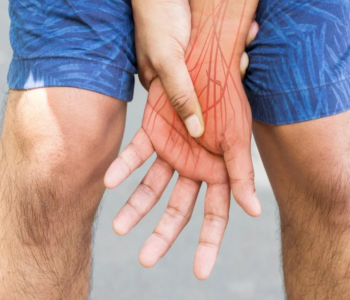 Health
Health
What is it called when you fall asleep every time you sit down?
Have you ever felt drowsy just sitting on your couch, at your office desk, or even at a meeting? If it’s happening often, there may be a health concern that goes beyond simple fatigue. In this blog, we will look into possible medical reasons that could be causing this deep sleepiness along with means to manage them.
Possible Medical Causes
Narcolepsy
Narcolepsy is a long-lasting neurological illness where the brain cannot properly control the sleep-wake cycle. Symptoms of narcolepsy include:
- Excessive daytime sleepiness (falling asleep suddenly)
- Cataplexy (sudden muscle weakness triggered by emotions)
- Sleep paralysis
- Vivid hallucinations when falling asleep or waking up
If you are falling asleep uncontrollably during the day, even after a good night’s rest, there’s a chance you could be suffering from narcolepsy.
Sleep Apnea
Sleep Apnea is a medical condition characterized by frequent episodes of Pausing or shallow breathing (hypopnea) during sleep, resulting in poor sleep quality. Symptoms include:
- Loud snoring
- Waking up gasping for air
- Morning headaches
- Extreme daytime fatigue (sleeping while driving or in sitting posture)
- Obstructive sleep apnea (OSA) is the most common type and requires medical evaluation.
Chronic Fatigue Syndrome (CFS)
Myalgic encephalomyelitis (ME), or Chronic Fatigue Syndrome, leads to bodily exhaustion which does not alleviate with rest. Symptoms experienced by CFS patients include:
- Feeling drained even after slight physical or mental exertion
- Diminished ability to focus (“brain fog”)
- Resting without feeling refreshed (non-restorative sleep)
Idiopathic Hypersomnia
This condition causes excessive daytime drowsiness without an identifiable cause. Unlike narcolepsy, cataplexy (sudden loss of muscle tone) is not experienced.
Do you find yourself dozing off during the day? Falling asleep at one’s workplace, during a meeting, or while driving is not only frustrating but can also be dangerous. This blog discusses the reasons behind the undue sleepiness, lifestyle changes that can be adopted, and medical treatments that can resolve sleep issues.
Inadequate or Poor Sleep Hygiene Practices
Often, the issue simply stems from insufficient restful sleep each night because of:
- Irregular sleeping patterns
- Screen time just before bed
- Related stress or anxiety
- Caffeine or alcohol intake late in the evening
Other Medical Disorders
Some medical problems can also cause increased sleepiness:
- Hypothyroidism (underactive thyroid) – Reduces metabolic rate and increases fatigue
- Diabetes – Tiredness may result from blood sugar level changes.
- Anemia – Lowered iron leads to reduced oxygen which can make you feel weaker.
- Depression or anxiety – Mental health issues disrupt sleep cycles.
When to Get Medical Help
If you have a habit of dozing off where you’re sitting and doing daily tasks, then it is advisable to see a doctor if you notice:
- Uncontrolled sleep attacks
- Snoring loudly or pausing breath while sleeping
- Increased forgetfulness or inability to focus
Diagnosis And Treatment
A sleep practitioner might suggest a:
Polysomnography (sleep study) – Evaluation of brain activity, respiration and movements of an individual during sleep.
Drowsiness tests: You are observed during the day to see how fast you fall asleep. This is only done in the case of suspected narcolepsy.
Blood screening: Evaluate a patient’s blood for thyroid function, anemia, or diabetes.
Available Treatment
- Based on the findings, the following may be initiated:
- Installation of a CPAP machine for patients suffering from sleep apnea.
- Medications (for narcolepsy Modalert Australia and Modalert 200 or idiopathic hypersomnia) Stimulant
- Changes to lifestyle (better sleep hygiene, diet, and exercise)
- Therapeutic treatment or antidepressants (if associated with mental illness)
Conclusion
Falling asleep whenever sitting down is outside the realm of normal and could suggest the presence of a sleep disorder or some other condition. If this occurs frequently, consult a medical professional for a proper diagnosis. Improving one’s sleeping patterns together with their general health can result in the restoration of energy and concentration.









